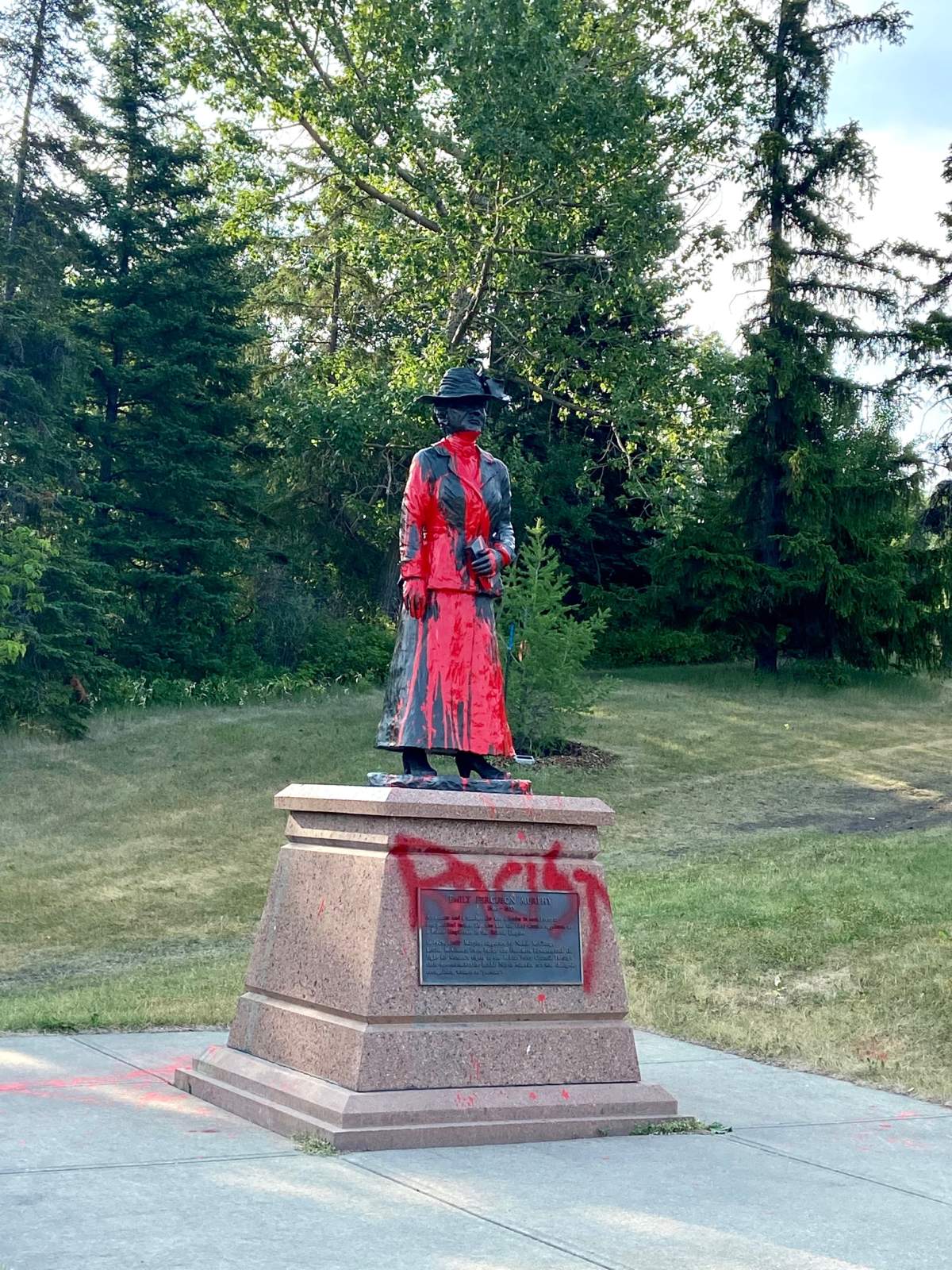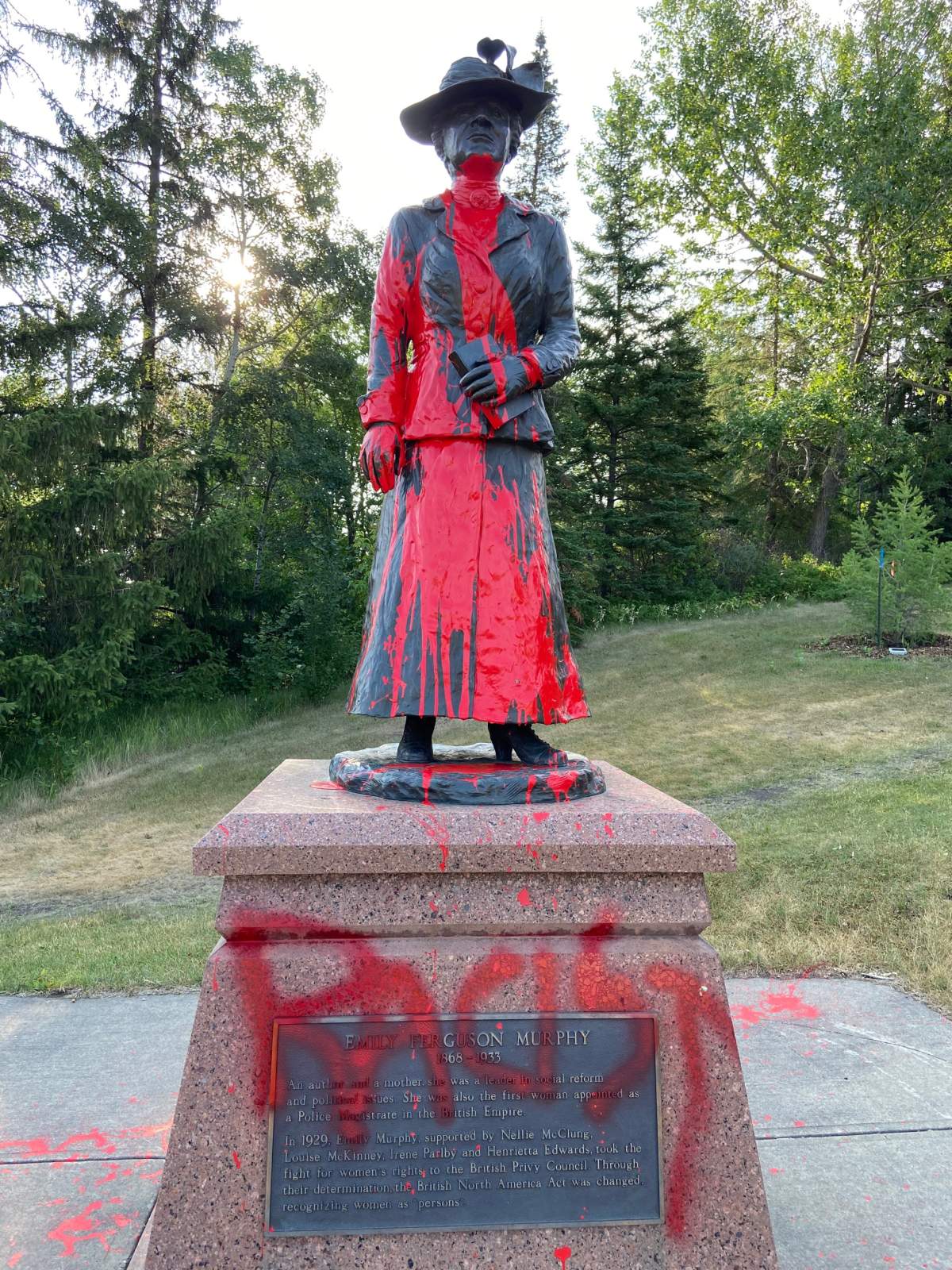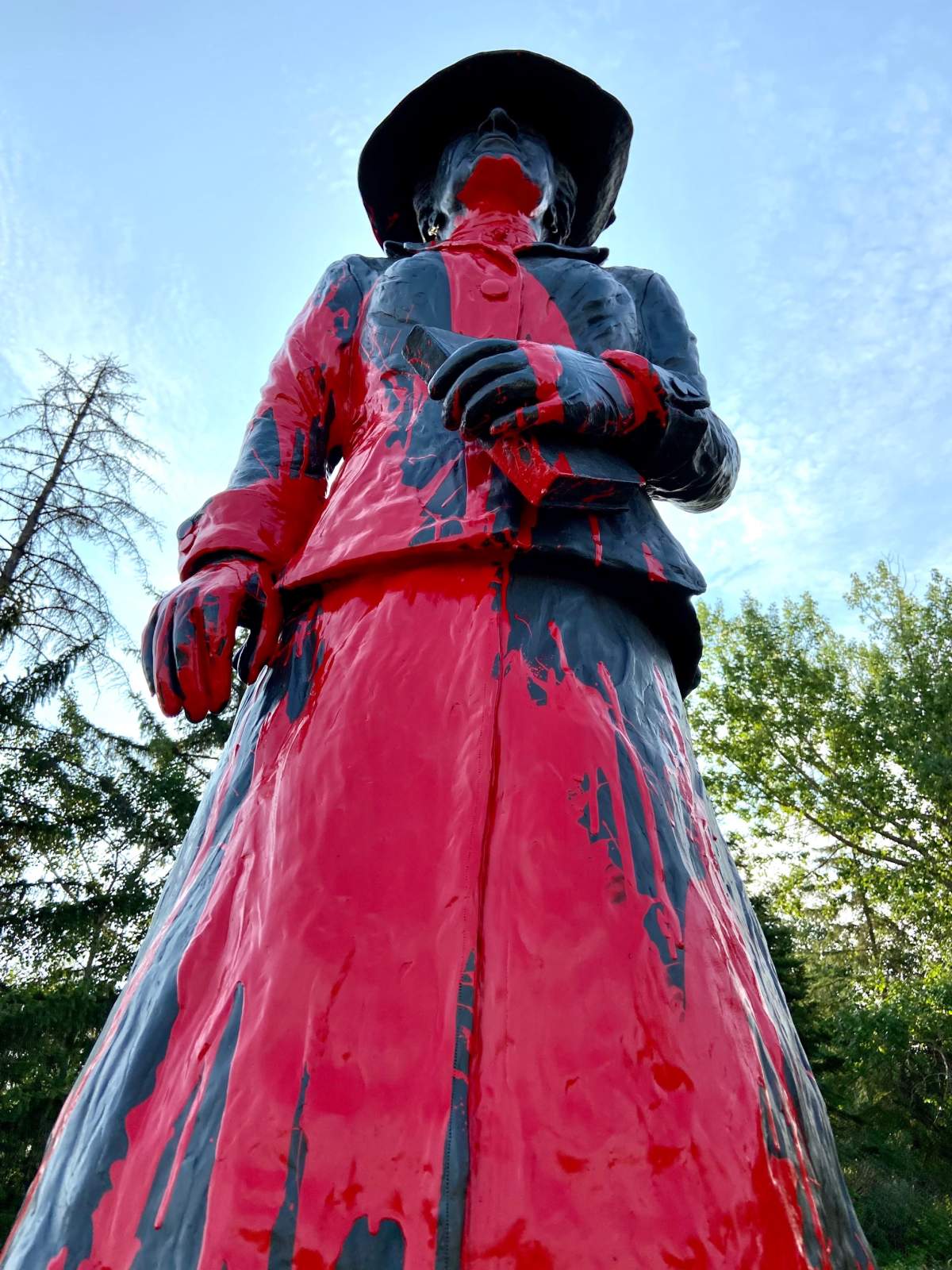A statue of Emily Murphy in Edmonton’s river valley has been defaced with red paint.

Red paint covered the Emily Murphy statue Tuesday morning and the word “racist” was written on the plaque on its base.
Murphy was one of the Famous Five behind the Persons Case, a campaign to have women declared persons in the eyes of British law. However, her views on immigration and eugenics have been criticized as racist and elitist.
“Emily Murphy, along with all the Famous Five and most social reformers of the period, ascribed to the philosophy of eugenics; this idea that there was superiority of the races and, in particular, people of northern European Christian decent were superior,” explained Rebecca Sullivan, a professor in the Gender and Sexual Studies program at the University of Calgary.
“They tried all different kinds of ways to prove that they were superior. I’m sure many of you have heard about the idea of being high brow versus low brow — that actually comes from physically measuring the forehead with calipers to prove that white northern European-decent people had higher foreheads because they had bigger brains.”
Sullivan said using the word racist to describe Murphy “is not inaccurate,” pointing to a publication called The Black Candle. Under the pseudonym Janey Canuck, Sullivan said Murphy wrote the piece which focuses on the drug trade and criminalization of illegal drugs.
Sullivan said the piece “singles out in particular Chinese, Greek… and of course African immigrants, were all targeted in this piece as genetically inferior and therefore more susceptible to vice.”
“It framed it all around moral superiority, and intellectual inferiority, like the inability of racialized immigrants and First Nations to withstand these vices and that they were bringing the rot into Canadian society — meaning white Christian society, fair-complexioned.
“There’s no two ways to read The Black Candle. It’s just full-blown racist.”
Sullivan said removing the statue will not erase history and she would like to see larger conversations around figures like Murphy.

Get daily National news
“What I want to do with the history of Emily Murphy is understand it in a much more comprehensive and complex manner,” she said.
“Does that mean that maybe we stop for a while with statues and parks being named after people who caused a lot of harm? Sure. Will we continue to teach Emily Murphy in the classroom? I will. Nobody is saying don’t teach Emily Murphy. Nobody is saying don’t teach the Famous Five or the Persons Case. We’re saying teach it better.”
Murphy was born on March 4, 1868 in Cookstown, Ont., and died in Edmonton on Oct. 27, 1933.
Late Tuesday afternoon, city manager Andre Corbould issued a statement about the statue being vandalized and acknowledged “the strong emotions and polarizing opinions that arise when we consider the attitudes and beliefs of historical figures whose actions no longer reflect our modern ideas and values.”
“We are listening to these concerns and are taking steps to determine how to handle these issues through our work in revising our Naming Committee Bylaw under City Policy C509B, and our Statuary Policy C459,” he said. “But this type of work takes time and must include the voices of all Edmontonians, not just those who believe they can solve such concerns through damage or destruction.
“Criminal acts will not drive city policy.”
Corbould said while attitudes and values evolve over time, government’s must keep pace, but also noted “that can’t happen overnight.”
“We ask for people’s understanding and patience so that the solutions we develop reflect our broader society,” he said.
“Vandalism solves nothing. It destroys property, it destroys the hard work of the artist who created the monument or statue and it causes greater anger and frustration.”
In a statement, the City of Edmonton also said the naming and the potential renaming of any park or place is an in-depth process that requires “engagement, research and community buy-in.”
Names can be submitted by residents, organizations, community leagues, developers and city departments.
The city is undertaking a review of the policy that outlines what kind of statues and monuments can be erected in the city. It was last updated in 1990.
“Current plans are for an amendment of the policy and procedures in 2022 to better reflect the current environment and city policy frameworks like the diversity and inclusion policy and the Indigenous framework,” the statement read.
Part of the revised policy will include procedures for dealing with complaints or concerns about specific statues or monuments. The public will be consulted during the process, the city said.
The Edmonton Arts Council was responsible for the cleanup of the statue, which was completed by Tuesday afternoon. The EAC estimates the cleanup cost about $1,200.
The statue is located in Emily Murphy Park on the south bank of the North Saskatchewan River.
It’s now known exactly when the statue was defaced. A spokesperson with the Edmonton Police Service said Tuesday afternoon that she could not confirm whether the incident was reported to police.
– With files from Phil Heidenreich, Global News and Kirby Bourne, 630 CHED


















Comments
Comments closed.
Due to the sensitive and/or legal subject matter of some of the content on globalnews.ca, we reserve the ability to disable comments from time to time.
Please see our Commenting Policy for more.